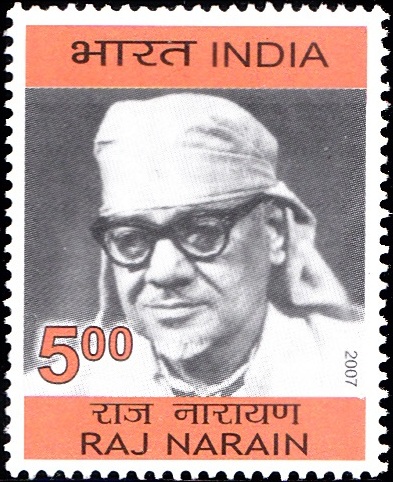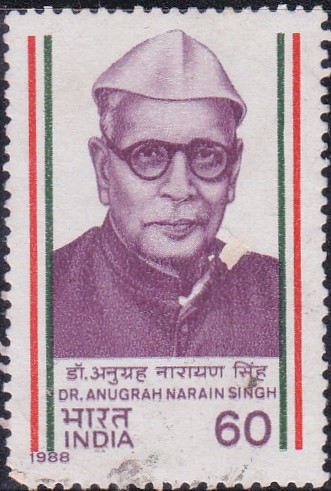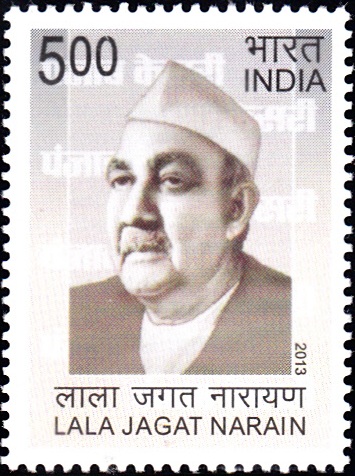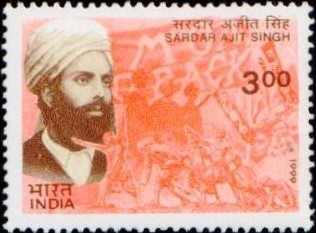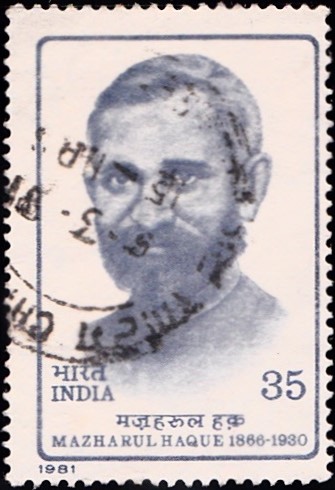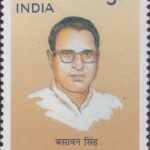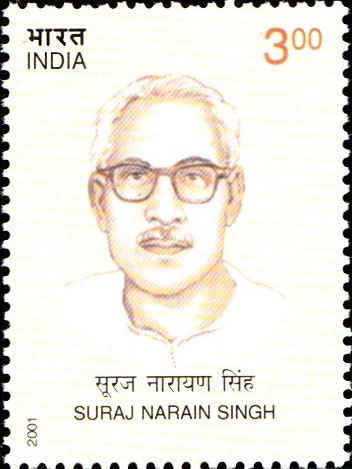
Suraj Narain Singh
A commemorative postage stamp on Shaheed Suraj Narayan Singh, a revolutionary nationalist from Bihar :

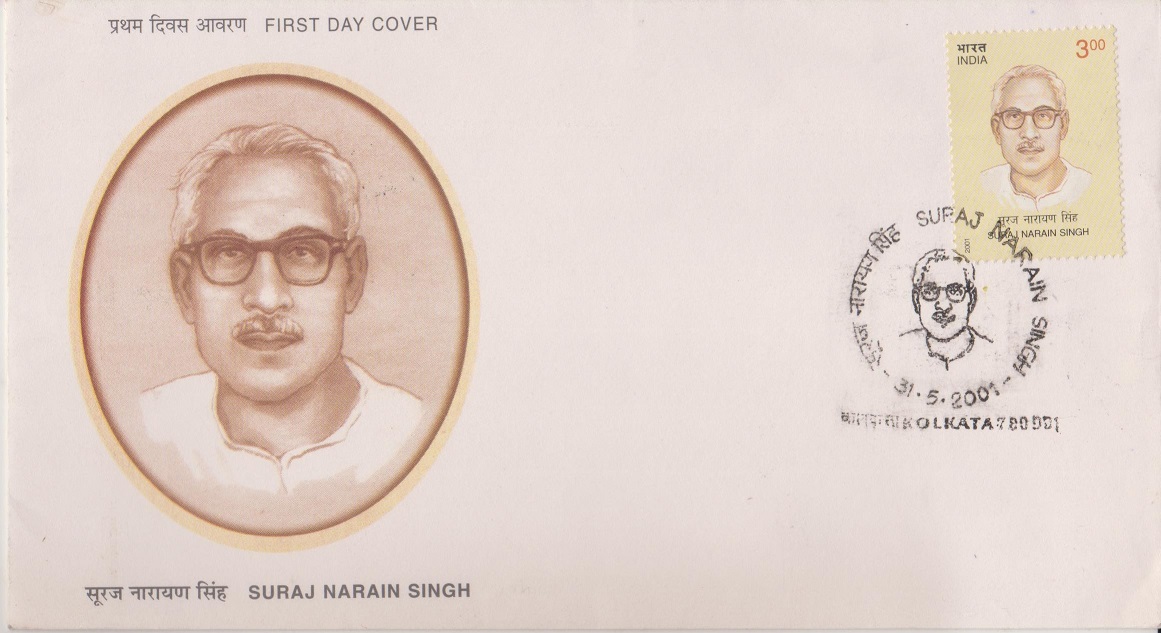 Issued by India
Issued by India
Issued on May 31, 2001
Issued for : The Department of Posts is happy to issue a postage stamp in honour of this nationalist leader.
Credits :
Stamp & FDC : Sankha Samanta
Cancellation : Alka Sharma
Type : Stamp, Mint Condition
Colour : Four Colour
Denomination : 300 Paise
Overall size : 2.90 x 3.91 cms.
Printing Size : 2.54 x 3.55 cms.
Perforation : 13 x 13
Paper : Imported Unwatermarked Stamp Paper
Stamps Printed : 0.4 million
Number per issue sheet : 40
Printing Process : Photo Offset
Printer : Madras Security Printers Ltd.
Name : Suraj Narain Singh
Born on 1908
Died on 1973
About :
- Suraj Narain Singh (1908-1973) was the foremost revolutionary nationalist in Bihar for almost two decades, during a tumultuous phase of India’s struggle for independence.
- The revolutionary strand of nationalism which made its appearance in the early decades of the twentieth century added an aura of romance and heroism to the freedom struggle. The young revolutionaries strove to strike terror in the hearts of the rulers through individual acts of violence and thus to arouse the people politically and ultimately to drive the British out of India. Though they made the fatal error of underestimating the brute strength of an imperialism at its zenith and hence lost out on their mission, their sacrifices did not go waste. Their daring acts of heroism made the country proud and lifted the morale of the masses on the face of innumerable acts of repression unleashed by the colonial rulers.
- Suraj Narain was drawn towards the national movement at a very young age, and soon found himself removed from his school for having participated in the non-cooperation movement of 1921. Undeterred, he moved to Varanasi and completed his education from Kashi Vidyapith, a centre of nationalist education. Works of Tilak and Bankim Chandra, with their patriotic fervour, influenced him deeply. The execution of Bhagat Singh in 1921 was a turning point in his life; it motivated him to plunge into revolutionary activities.
- He lived the heroic life of a revolutionary thereafter, organizing innumerable anti-government acts and often risking his own life with gay abandon. At different periods of the freedom struggle, he was closely associated with such stalwarts like Yogendra Shukla, Baikunth Shukla and Jai Prakash Narain. He was involved in several conspiracies and works of sabotage aimed at paralyzing the British administration, the high-point of which was the ‘Quit India‘ movement when he led many a raid on police stations, treasuries and other government offices. He was also sympathetic to the cause of the peasants and workers and made some successful efforts in organizing Kisan and Trade Union movements. He was arrested and sentenced to jail on many occasions.
- In the post-independence period he was an active presence in the political scene of Bihar, as an important leader of the Praja Socialist Party as well as a member of the Legislative Assembly.
- Suraj Narain Singh was radical and modern in his outlook. He denounced the caste system as well as the exploitative tendencies in the established religions of the world. He believed in universal brotherhood and considered service to humanity to be the supreme religion. He disapproved the western system of education and advocated national education in its place. He also stood for the abolition of the zamindari system, consolidation of holdings and mechanized agriculture.
- Text : Based on the Dictionary of National biography edited by S.P. Sen.
Subscribe
Login
0 Comments
Oldest


